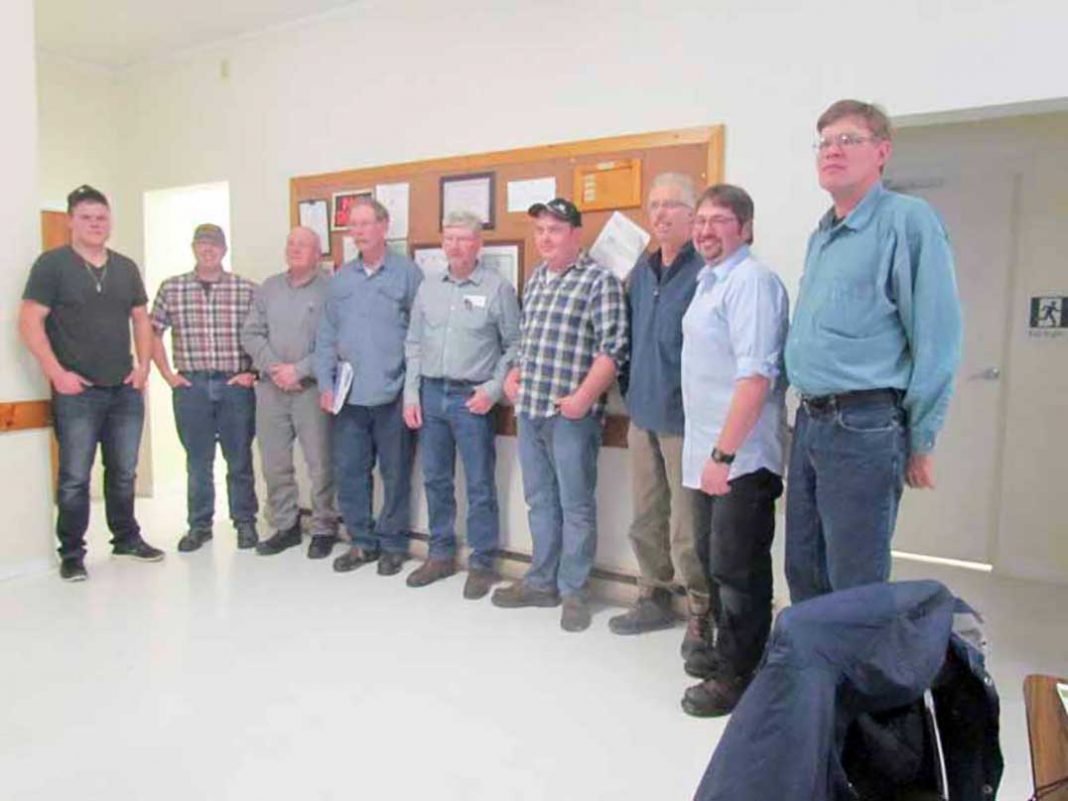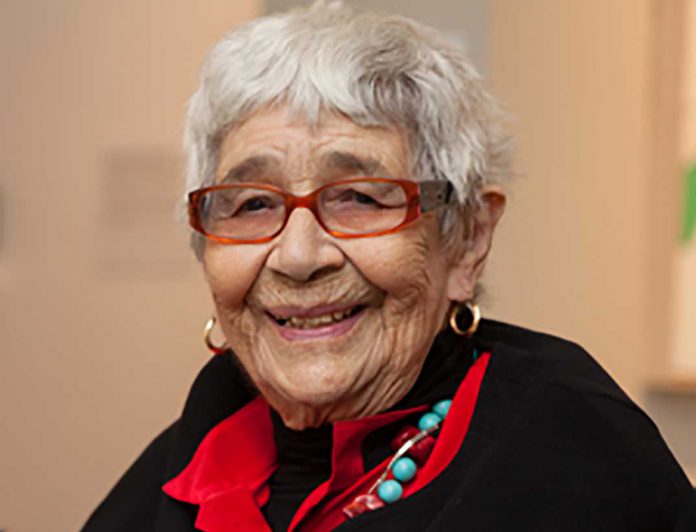SPRING BAY—The Manitoulin Cattleman’s Association (MCA) along with the Manitoulin Soil and Crop Improvement Association (MSCIA) held their annual general meeting (AGM) at the Spring Bay community hall on January 19.
Following the welcome by the joint association’s president, John McNaughton, and a reading of last year’s minutes and the financial report by Secretary-treasurer Marca Williamson, the floor was opened for elections. The outcome of the elections saw the remaining board of director’s stand as well as the addition of Jordan Miller. Brent Best, Max Burt, Rob Davidson, Bruce Orford, Chris Noland, John McNaughton, Jim Martin, Scott Runnalls, Floyd Orford, Dave McDermid, Dave McAllister and Jordan Miller will serve for 2017. Ms. Williamson did not stand for re-election. Jordan Miller was elected as the advisory councillor for the Beef Farmers of Ontario (BFO) with Chris Nolan serving as the alternate. Mr. Miller will attend the AGM of the BFO to be held in Toronto February 22 and 23 with Brent Best and John McNaughton.
Guest speaker at the meeting was Matt Bowman, president of the Beef Farmers of Ontario and the Northern Director. He began his talk with the provincial update. “I am pretty proud of some of the stuff we’ve done last year,” he said. He then went on to talk about transportation regulations, which means no more than 36 hours of transport and then the beef must be fed and watered. The same must be applied to nursing calves after 12 hours.
“Animal care is first and foremost under these regulations,” he added. Mr. Bowman went on to talk of the Animal Care Code of Conduct, cow herd expansion, the research update, the fact that there is a national check-off increase and regional marketing initiative as well as a program to make beef the product of choice. “Consumers in Ontario are the strongest in Canada,” he said, adding that Ontario grows the best beef in the country. He spoke about climate change and the effect it could have on beef in Ontario. Some of the changes effecting cattlemen could be that excessive rainfall would perhaps put pressure on existing drainage systems, new varieties of plants might be needed, the design of livestock buildings may have to be changed and excessive heat would necessitate the improvement in how cattlemen use water.
Mr. Bowman spoke of corn feed for cattle saying, “Corn fed beef is excellent.” He went on to say that Korea had lifted its ban on Canadian beef, but the desire of the new United States president would see that country become increasingly protectionist and that an announcement by “that Trump guy” caused a drop in the Canadian dollar.
Mr. Bowman also talked about blue tongue disease, which usually affects sheep, but can also be found in cattle. Indeed, two outbreaks have occurred in Canada,
one in British Columbia and the other in Ontario. It is spread by midges transmitting the Bluetongue virus. Beef farmers can help to curtail this disease or stop it altogether from infecting their cattle by housing livestock from dusk to dawn when the midges are most active, by protecting livestock shelters with fine mesh netting, turning off taps and mending leaks and filling in or draining damp areas as well as covering or removing dung heaps or slurry pits.
Mr. Bowman’s remarks as well dealt with reminding the cattlemen of their support for check-off. This is a $4 per head sold by cattlemen of which $3 goes to the BFO and $1 is a national levy to fund research and marketing. He ended by speaking of building leadership at the next annual meeting.
Birgit Martin spoke at the meeting and presented for Mack Emiry, the OSCIA representative. She talked of the Tier One and Tier Two grants. The Two Tier grants are already in place for four different studies, but Tier One grants of up to $1,500 each year are available and can be used for guest speakers, field trips and such. Also, as Ms. Birgit explained, soil health checkups are available with a certified crop advisor and members who belong to the Ontario Soil and Crop Improvement Association will receive a 10 percent discount which will be in effect until the end of December 2017. Ms. Williamson told the audience that she will scan and send in the discount for soil analysis if email addresses are provided.
Mary Scott, workshop leader for Ontario Soil and Crop, encouraged members to attend the Going Forward 2 (GF2) free workshop she had set up before applying for any grants, with species at risk and biodiversity being topics. The GF2 program covers six different focus areas including environment and climate change adaption, assurance systems which includes food safety, traceability and animal welfare, market development, animal and plant health, labour productivity enhancement and business and leadership development.
Brian Bell, representing the Ontario Ministry of Agriculture, Food and Rural Affairs (OMAFRA), spoke at the meeting of the knap weed which, he said, “Is a blight in Algoma. It looks like Scotch thistle. We have to thoroughly identify this.”
“Perhaps it is already on the Island,” an audience member suggested.
Eric Theijsmeijer, representing FedNor, a Northern Ontario Development Program, announced that the Sustainable New Agri-Food Products and Productivity Program (SNAPP) is back and that the government funds the agricultural sector over $1million every year. The SNAP Program’s website states that the program supports Northern Ontario agriculture and food producers, businesses, collaborations, communities and First Nations to create new products, enhance abilities for season extension, scale up production or enhance productivity.
Of special concern for the cattlemen at the meeting is the large increase in the farm land value assessments put forth by the Municipal Property Assessment Corporation (MPAC) with beef farmer Max Burt stating that their organization should be doing something about the problem. After some discussion, it was resolved that there be a moratorium on farm assessments until all parties meet and come to an understanding on the true realistic value of these lands. It was agreed that the organization’s request would be given to the Director with the understanding that it would then go to the provincial representative for support and also to the Manitoulin Municipal Association (MMA).
Ms. Williamson was thanked by the members for her outstanding role as secretary-treasurer over the years.




